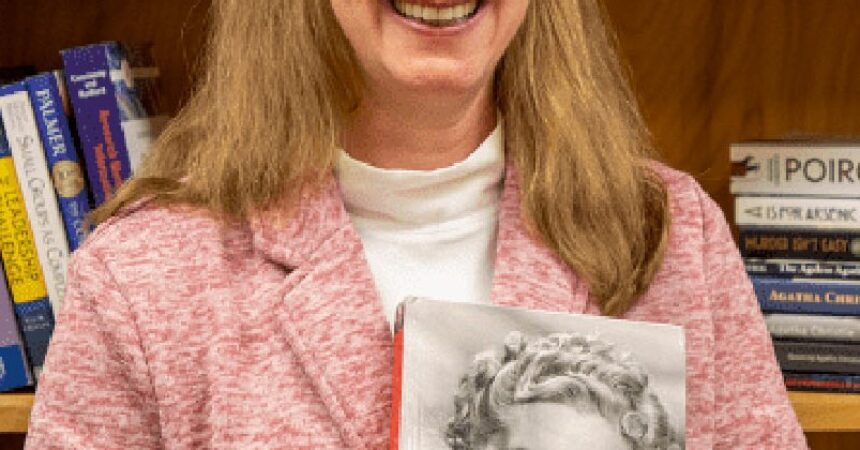
FSU dean first American keynote speaker at U.K. Agatha Christie Conference

Photo submitted by FSU
Special to the Outlook
Michelle Kazmer is the dean of the College of Communication and Information and a professor in the School of Information – but she’s also a leading expert on Golden Age crime fiction author Agatha Christie.
Kazmer last month became the first American to give a keynote speech at the Agatha Christie and Golden Age of Crime international conference, a gathering of academics in Exeter, U.K.
The annual event, which started as one doctoral student holding a conference related to his dissertation, has grown into a cross-discipline international conference. Almost 10 years ago, Jamie Bernthal held the first conference when he was a University of Exeter doctoral student writing a dissertation about Agatha Christie.
Since then, scholars from across the globe have attended the conference, bringing their contributions on how Christie’s work relates to their respective fields of study; linguists, lawyers and archeologists were among those in attendance this year.
“I have this treasured community of scholarly colleagues,” Kazmer said. “Everybody has something to offer and take away.”
Kazmer’s 45-minute keynote, “Somerset House, Selfridges, and the Castanets of Bronze: Information Systems in the Works of Agatha Christie,” focused on information systems used by Christie in her works. These systems include the telephone, telegraph, and postal systems, but also systems of information such as publications and railroad timetables.
Some scholars argue that it’s difficult to write modern crime fiction simply because of the accessibility of modern information systems available to people. Kazmer’s keynote points to the large number of formalized information systems available during Golden Age crime fiction — to the writers, readers and characters — that manifest in Christie’s work.
“Detection is an information behavior,” Kazmer said. “You are seeking information, figuring out what to keep and what to get rid of, organizing what you keep and then drawing a conclusion. In the case of these stories, the detectives use information to determine who committed the crime and why.”
The conference emphasizes the relevance of Christie’s works to academia, as well as her lasting impact in modern society and media.
“Most of the things we think of as typical tropes in detective fiction, Agatha either did it first or did it best,” Kazmer said. “She is eminently readable and re-readable, and her work has been translated into more than 100 languages and adapted into every communication and entertainment medium from stage plays to video games. New audiences are continually discovering and loving her work.”
It’s because of this that Christie’s works endure in contemporary media. Kazmer discovered Christie’s books at her public library when she was just 12 years old. She said that Christie’s works provide entertainment and comfort while helping shape society’s views of justice, evil, evidence, morality and crime.
“We’re studying how popular crime fiction is really shaping how people view their role in humanity, and that’s really important,” Kazmer said. “FSU and my colleagues acknowledging the importance of this work and supporting my contributions allows me to travel to these conferences and engage in these discussions.”







